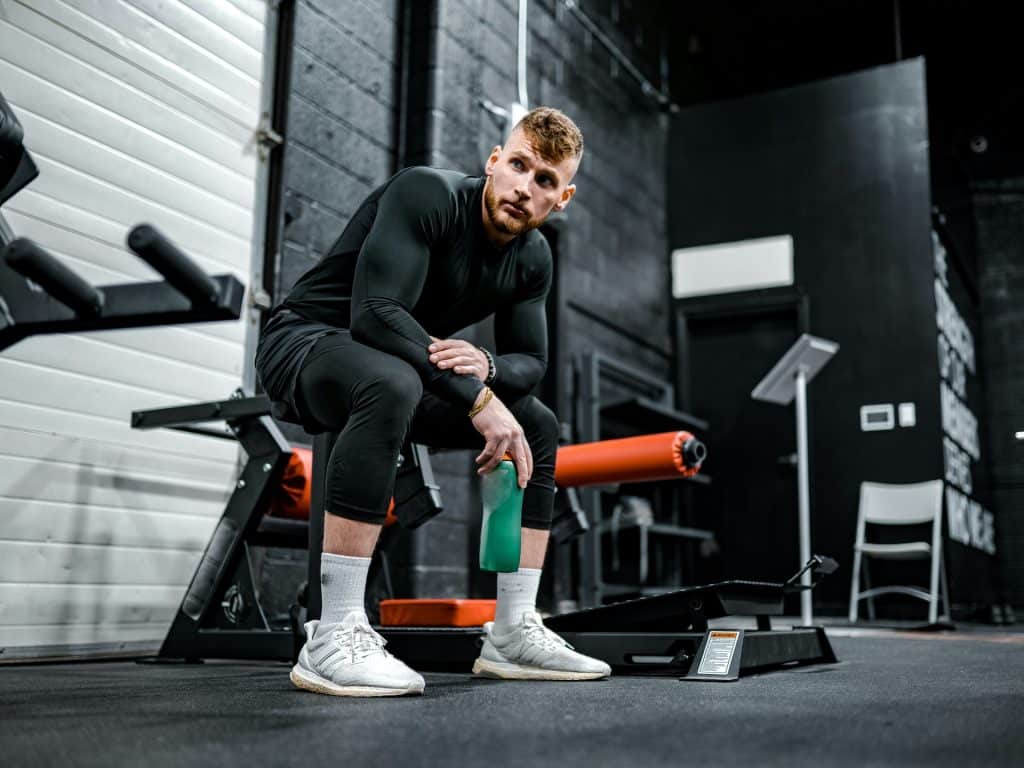
They take center stage in most conversations about sports nutrition and there are compelling reasons for this. Branched chain amino acids (BCAAs or BCAAs for their acronym in English, Branched chain amino acids) play a fundamental role when it comes to preserve muscle mass in intensive training and also in the recovery after exercise.
Now, it must be taken into account that the intake of these 3 essential amino acids (leucine, isoleucine and valine) will be of little or almost no use if ingested in isolation and ignoring the rest of the essential amino acids as a whole.
What are BCAAs
We are not exaggerating if we say that without amino acids (or AA) there is no life. These molecules are the components of proteins, which are in turn the elementary structures for developing vital functions such as the absorption of nutrients, the production of hormones or tissue repair. Of the 20 amino acids that our body uses for protein production, 9 of them are considered essential. This means that they can only be obtained through the diet, since our body is unable to produce them on its own in sufficient quantities to meet physiological needs.
Among those essential amino acids that must be acquired from food, 3 stand out – valine, isoleucine and leucine– for having a different molecular structure, in the form of a branch. This peculiar structure gives rise to the name branched chain amino acids. As the name is long and difficult to memorize, it is often simplified by its Anglo-Saxon acronym, BCAA.
These amino acids are old acquaintances in the world of sport Nutrition since they are abundantly present in the muscle proteins and are closely related with the muscle growth.
What are BCAAs for?
As explained by Javier Marhuenda Hernández, professor at the Faculty of Pharmacy and Nutrition at UCAM and member of the Specialization Group on Nutrition and Dietetics for Physical Activity and Sports of the Spanish Academy of Nutrition and Dietetics, “the peculiar molecular structure of BCAAs facilitate its use directly by muscle tissue. This allows them to act quickly and optimize energy sources during exercise,” he explains.
These amino acids are crucial for muscle protein synthesis, reduces fatigue and accelerates post-exercise recovery. Additionally, it helps preserve muscle mass in situations of metabolic stress, such as low-calorie diets or intensive training.
The sports nutrition expert clarifies that, “despite the benefits, The intake of isolated BCAAs is much less effective than supplementation or intake of all essential amino acids together and in sufficient quantity«.
Benefits of BCAAs for athletes
Muscle protein synthesis
There is something that makes them different from the rest of the amino acids, and it is their ability to break down in the muscle, instead of in the liver. Therefore, BCAAs play an essential role in producing energy during training. “Athletes take BCAAs mainly for their benefits in the muscle performance and recovery. They help stimulate protein synthesis in the muscles, and this is crucial for muscle repair and growth after intense workouts,” details Marhuenda.
Reduction of post-exercise muscle fatigue.
BCAAs can reduce fatigue during prolonged exercise, allowing athletes to train longer and with greater intensity. The professor from the Catholic University of Murcia remembers something that is also fundamental for all people who regularly practice a sport with intensity: “There are indications that they help Reduce post-exercise muscle pain and accelerate recovery.which would make it easier to maintain a constant training regimen,” says the expert.
Preserve muscle mass
Long-duration sports, such as cycling or marathon training, cause considerable degradation of muscle fibers. “BCAAs can preserve muscle mass during periods of strict dieting or intensive training, providing an alternative energy source when glycogen stores are low.”

BCAA, also for women
BCAAs are indicated for women as well as men, since there are no significant differences in the way they are metabolized. “Women can benefit from BCAA supplementation in the same way, improving muscle protein synthesis, accelerating post-exercise recovery and reducing muscle fatigue during intense workouts,” concludes the expert.
How to get BCAAs with food
Although in the sports field it is easy to believe that sports supplements solve any nutritional requirement, it is worth knowing that BCAAs are found in a variety of protein-rich foods, both of animal and plant origin. «The best sources are those of animal originincluding lean meats, especially poultry such as chicken, or lean parts of beef and pork, as well as fish and seafood,” explains the dietitian-nutritionist.
Other important sources of BCAAs are eggs and dairy products, such as milk, cheese, and yogurt.
For those who follow a vegetarian or vegan diet, legumes (beans, lentils and chickpeas), nuts and seeds, and some semi-cereals, such as quinoa, stand out, although in a more modest way.
Is it essential to supplement?
Marhuenda recognizes that, although BCAAs can be obtained through a normal protein-rich diet, supplementation is sometimes used to obtain specific benefits more efficiently. “Supplementation is particularly useful in Situations where it is difficult to consume enough protein through diet alone., such as in restrictive diets or during very demanding training. Also in cases of muscle loss due to illness, aging or periods of immobility, where a higher intake of BCAAs can help preserve muscle mass and promote protein synthesis.”

Supplements, daily or only on training days?
The big question among athletes is when to take essential amino acids in the form of supplements. Sports nutritionists agree that this intake of BCAA supplements can vary depending on individual goals and needs, but it is generally recommended to take them. coinciding with training days. “Taking them before exercise can help reduce fatigue and provide an additional source of energy during training. Taking them afterwards can speed up muscle recovery and reduce post-exercise soreness,” she explains. The most common dose is usually 0.01 grams, or what is the same, 100 milligrams per kilogram of weight.
Some people also choose to take BCAA supplements. during the training to maintain stable levels of these amino acids in the body. Generally powdered and diluted in water (in smoothies).
On rest days, supplementation is not strictly necessary, but some people choose to continue taking them to maintain a positive amino acid balance and support continued recovery.
When to stop supplementation
BCAA supplementation may not be necessary in the long term if you can maintain a balanced diet rich in protein. Assuming that you should always consult a sports nutrition professional before starting or discontinuing the use of BCAAs, Marhuenda warns that “it is advisable to stop supplementation if persistent side effects are experienced, or if clear benefits are no longer observed. It is also advisable to stop supplementation in case of pre-existing medical conditions, such as kidney or liver problems.”
The ALDI Council
The best strategy to achieve your sporting goals is to put yourself in the hands of a qualified trainer and entrust your diet to a dietician-nutritionist. Don’t trust your health to Google results!

Javier Marhuenda. Dietitian-nutritionist, with an outstanding doctorate cum laude and an Official Master’s Degree in Clinical Nutrition (2011), Teacher Training (2012) and Nutrition and Food Safety (2017). He is a full academician of the Spanish Academy of Human Nutrition and Dietetics and Member of the Sports Performance Specialization Group. He is director of the Master of Sports Nutrition in Special Populations (CEU-Cardenal Herrera), professor and researcher at UCAM-University and Member of the research groups «Sport Physiology» and «Bioavailability of Bioactive Compounds». INSTAGRAM: @jmarhuenda_phd Head of the nutrition area at UCAM CF and former Albacete Balompié SAD







